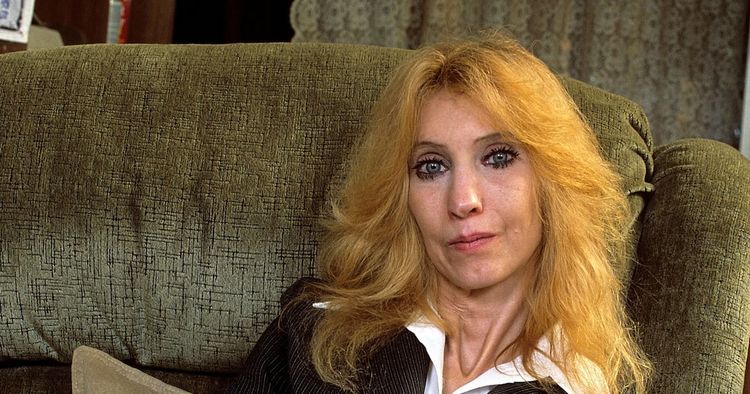Debbie Nelson, mother of rapper Eminem, dies at 69

Debbie Nelson, a single mother from Missouri whose tumultuous relationship with her eldest son, rapper Eminem, provided fodder for some of his early hits, died Monday. She was 69.
The death was confirmed by Dennis Dennehy, a long-time representative for Eminem, who did not cite a cause or say where she died.
Nelson was known for her fraught relationship with Eminem, who through his talent for hip-hop went from being a bullied little boy named Marshall Mathers to a hugely successful rapper. He wrote about their struggles in several songs, including one of his biggest hits.
In his rage-fuelled, freewheeling 2002 single Cleanin’ Out My Closet, Eminem has a reckoning with his mother over his upbringing, accusing her of neglect, abuse and prescription-pill abuse.
In the chorus, he sarcastically apologises for making her cry, only to add, “How dare you try to take what you didn’t help me to get?”
Ms Nelson, who sued her son for defamation in 1999 over another unflattering representation of her in his song “My Name Is,” shared her account of their relationship in a no-holds-barred memoir, My Son Marshall, My Son Eminem, which was published in 2008.
Deborah Rae Nelson was born on January 6th, 1955, to Betty Hixson and Bob Nelson. She and the rapper’s father, Marshall Mathers junior, performed in a band called Daddy Warbucks and married when she was a teenager. At 17, she gave birth to her son Marshall on October. 17th, 1972.
Ms Nelson, who for a time went by Debbie Mathers but resumed using her maiden name after her son’s rise to fame, divorced her husband when Marshall was an infant. What ensued was an itinerant decade, one in which the two bounced from home to home, and for Marshall, from school to school, before they settled in Detroit.
By the late 1980s, Marshall was discovering hip-hop and had assumed the name M&M. Around that time, Nelson allowed a teenager who had run away from home to stay with them, Nelson told Salon in 2000. Eminem later developed a relationship with the girl, Kim Scott, and the two eventually married and had a daughter.
Nelson sought $10 million in damages in her 1999 defamation suit, but later said it was her lawyer’s idea and settled out of court for $25,000, most of it legal fees. In a 2000 music video meant to address the lawsuit, Nelson apologises, over music and a photo montage, but says her “unconditional love created a spoiled young man, an angry one, too”.
“Anything Marshall wanted, he got,” Nelson told Salon the same year. “I sheltered him too much and I think there’s a little resentment from that.”
In Lose Yourself, a single from the movie 8 Mile that sold more than 10 million copies and won two Grammy Awards in 2004, Eminem nodded more affectionately to Nelson with a reference to “Mom’s spaghetti”. (Eminem would go on to repurpose the name for a pasta sauce line and a Detroit restaurant).
But in the 2009 track My Mom, he drew a direct line between his issues with drug-addiction and hers, claiming she had sprinkled Valium on his food.
In a 2008 memoir, The Way I Am, Eminem did not go into as much detail about his mother as he did in his songs, though in a section about his family, he wrote, “If you go back and look at the abuse that I took, it’s no surprise I became who I am.”
And in 2010, he told The New York Times magazine, “It’d be very hard to repair that relationship.”
In addition to Eminem, Nelson’s survivors include another son, Nathan Mathers, and several grandchildren. She was married and divorced at least twice. For years, she ran a taxi service in St. Joseph, Missouri, where she lived with her last husband, John Briggs.
As often as they clashed, it seemed, Eminem and his mother tried to reconcile. In his 2013 track Headlights, he showed remorse for his harsh lyrics and a greater understanding for her struggles.
“I’m sorry, Mama, for ‘Cleanin’ Out My Closet’,” he raps. “At the time I was angry. Rightfully? Maybe so. Never meant that far to take it, though.”
According to the song, the two remained estranged. But when Eminem was inducted into the Rock & Roll Hall of Fame in 2022, Nelson publicly congratulated him online.
“Marshall, I want to say, I could not let this day go by without congratulating you,” she said in a video that was later deleted. “I love you very much. I knew you’d get there. It’s been a long ride. I’m very, very proud of you.” – This article originally appeared in The New York Times.
2024 The New York Times Company








































